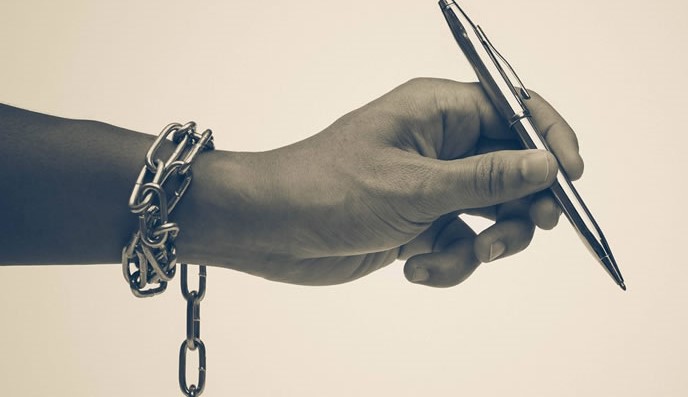Transparency and governance.
President Anura Kumara Dissanayake yesterday stressed that he regards the media not as ‘outsiders’ but as an integral part of the effort to build a better State and improve the lives of all citizens. He made these remarks during a meeting held with the heads of electronic media organisations at the Presidential Secretariat.
According to the Presidential Media Division (PMD), the President highlighted that the people expect a good political culture and elected the current Government to fulfil that expectation. He invited all media organisations to collaborate in fostering the new political, social, and economic changes that the people desire.
While the sentiments of the President are noble, and the mandate he has been given does require of him a change in the despicable political culture that had ruled in the past, Dissnayake should practise what he preaches. The National People’s Power (NPP) Government which rode a popular wave to power has, since it come into Government, been one of most difficult administrations to pry information out of . Let us hope that changes soon and that the Dissanayake Government walks the talk on the issues of transparency and accountability which they themselves called for when in opposition.
The ability for the press and media organisations to access key government officials, gain information in the public interest is one of the key checks and balances in the democratic governance. Without access and information, the responsible media organisations are starved of information to compile accurate and timely news and to fact check others, which leaves the citizenry less informed and at the mercy of less ethical media outlets, and narrative pushers in the guise of ‘citizen’ journalists, who are a dime a dozen today. Transparency and a vibrant media landscape is vital for good governance.
According to the PMD, President Dissanayake had urged electronic media heads to refrain from reporting false information that could harm national harmony. While affirming that the media has the right to question or criticise the government on political and economic matters, he stressed the importance of responsible reporting. Recalling the country’s history of enduring decades of conflict, the President had declared that racism would never be permitted again. He had also assured that he would not compromise or restrict media freedom in any way. However, his Government today has shut up like a clam outside the Parliament. With only one official channel for information, the Cabinet Spokesperson, who himself is almost unreachable except for a selected few, it seems the entire state apparatus has ‘gone dark’, which is not a healthy sight of a good democracy. What is more concerning is that, some of the traditional sources of information within the state apparatus, including trade unions and senior civil servants have begun to self censor themselves, due to fear of reprisals from the colleges and the trade unions who they were part of. Since, many of the trade unions are linked to the JVP and or is now too fearful to have a target painted on their back. This is classic information control via a central node, a practice more reminiscent of a soviet era government, and less of a modern democracy.
The NPP and its core element the Janatha Vimukthi Peramuna (JVP) may have legacy issues with mainstream media, and perhaps since they rode a popular wave of support which was largely displayed on social media, believes that their interaction on such platforms alone will be adequate for them to remain transparent. However, this is a fallacy. Despite a thorny relationship with some media organisations, and historic concerns about media ownership and politics, the NPP now in Government cannot simply shut its door to the media landscape. Especially with the kind of power they wield in the legislature. Sri Lanka’s media landscape, warts and all is a permanent feature of its democratic history and culture. Yes, there are issues which need to be addressed by the media industry. Stonewalling journalists and exercising information containment is not the answer to such issues. It is unhealthy for the State, and it will deprive the public of being able to hold the Government which they appointed accountable.
As such, the Dissanayake should practise what he preaches and instruct the ministries and state institutions to have their relevant spokespersons, and the Cabinet of ministers should also not shy away from the press. Social media is good to make waves, but the mainstream media, even with some issues has the institutional memory, credibility, analytics and offer depth in reporting, that is essential for awareness amongst citizenry who are bombarded with clickbait news, and hyper news cycles, fake and misleading news which are commonplace in the social media domain.
